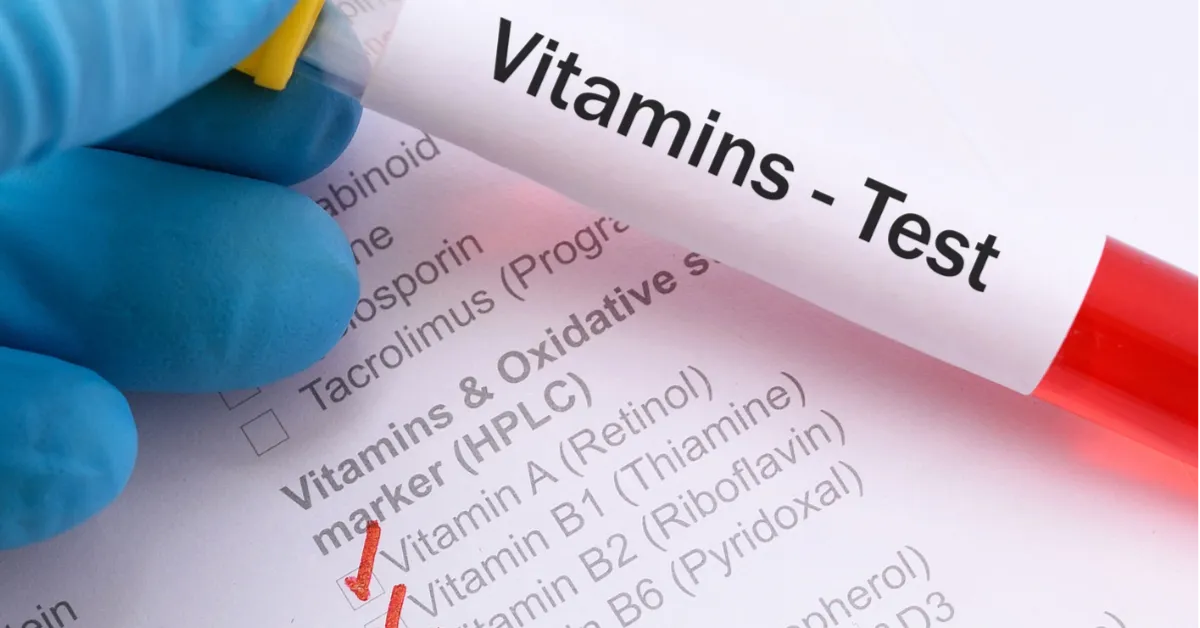ASTM D4563 Vitamin K Assay in Green Leafy Vegetables
The ASTM D4563 method is a standardized procedure used to determine the concentration of vitamin K in green leafy vegetables. This service plays a critical role in ensuring food safety, compliance with regulatory standards, and quality assurance for producers and manufacturers. Green leafy vegetables are an essential part of a healthy diet due to their high vitamin content, particularly vitamins A, C, E, and K. Vitamin K is especially crucial as it supports bone health, blood clotting, and heart disease prevention.
Vitamin K testing ensures that the products meet consumer expectations for nutritional value and safety. For instance, in a food production setting, accurate vitamin K levels can prevent issues with product consistency or regulatory non-compliance due to under- or over-processing. Compliance officers must stay abreast of these tests as they directly affect product labeling claims and safety certifications.
The ASTM D4563 method is widely recognized for its reliability in assessing vitamin K content, particularly in leafy greens like spinach, kale, collard greens, and Swiss chard. This service leverages advanced analytical techniques to provide precise results that are essential for quality control processes. Our laboratory adheres strictly to the standard's procedures, ensuring consistent and accurate data.
Quality managers can use this information to optimize production methods, enhance product consistency, and ensure compliance with national and international standards. By employing our ASTM D4563 testing service, companies can demonstrate their commitment to producing safe and nutritious products that meet consumer demands and regulatory requirements.
In the realm of research and development (R&D), vitamin K assays are vital for understanding the nutritional profile of new varieties or processed forms of leafy vegetables. This information is critical in tailoring formulations that provide optimal health benefits while maintaining product integrity.
Why It Matters
The importance of accurate vitamin K testing cannot be overstated, especially given the increasing demand for nutrient-rich and safe food products. Vitamin K is a fat-soluble vitamin that plays a vital role in blood clotting, bone health, and maintaining heart function. Ensuring the correct levels of this essential nutrient in green leafy vegetables is crucial for several reasons:
Firstly, it ensures product safety. Inadequate or excessive levels of vitamin K can lead to potential health risks, making accurate testing imperative. Compliance with international standards such as ISO 21574 and EN 16865 guarantees that the products meet stringent quality and safety benchmarks.
Secondly, accurate vitamin K testing supports labeling integrity. Proper labeling is crucial for consumer trust and compliance with food labeling regulations like FDA (US Food & Drug Administration) requirements. By providing precise data on vitamin content, we enable producers to make truthful claims about their products.
Thirdly, this service enhances product quality by ensuring consistent nutrient levels across different batches or production runs. This is particularly important for leafy vegetables that can vary in nutrient content depending on growing conditions and processing methods.
In summary, accurate vitamin K testing ensures the safety, integrity, and nutritional value of green leafy vegetable products. It supports compliance with international standards and regulatory requirements, enhances consumer trust, and contributes to product quality and consistency.
Scope and Methodology
The ASTM D4563 method is designed for the quantitative determination of vitamin K in green leafy vegetables. This section provides a detailed overview of the testing scope, the methods employed, and the acceptance criteria.
| Parameter | Description |
|---|---|
| Vitamin K Content | The primary target nutrient for determination in green leafy vegetables. |
| Sampling Procedure | Standardized sampling according to ASTM D4563 guidelines. |
| Analytical Method | High-performance liquid chromatography (HPLC) with fluorescence detection. |
| Acceptance Criteria | Vitamin K content within specified ranges as per the standard. |
| Parameter | Description |
|---|---|
| Sample Preparation | Cleanup process involving extraction, purification, and quantification steps. |
| Instrumentation | HPLC equipment with appropriate calibration standards. |
| Data Interpretation | Statistical analysis of HPLC data to determine vitamin K concentration. |
| Quality Control | Inclusion of control samples and validation tests for reliability. |
The ASTM D4563 method involves a series of steps, including the extraction of vitamin K from leafy vegetables using organic solvents. After purification, the sample is analyzed via HPLC with fluorescence detection to quantify the vitamin K content accurately. The acceptance criteria are based on the expected range for vitamin K in green leafy vegetables as per international standards.
Environmental and Sustainability Contributions
The ASTM D4563 Vitamin K Assay service contributes significantly to environmental sustainability by ensuring that food products meet stringent nutritional and safety standards. By providing accurate vitamin K levels, this service helps in optimizing the production process of leafy vegetables, which can lead to reduced waste and resource efficiency.
Accurate testing ensures that producers do not overprocess or underprocess their products, leading to more efficient use of resources such as water, energy, and land. This contributes to a more sustainable food supply chain by reducing unnecessary inputs while maintaining high nutritional standards.
The service also supports the certification of organic and eco-friendly production methods, which are increasingly important in meeting consumer demand for environmentally friendly products. By ensuring compliance with international standards like ISO 14001, this service helps producers achieve sustainability certifications that enhance their market reputation.
In conclusion, ASTM D4563 Vitamin K Assay not only ensures product quality and safety but also plays a crucial role in promoting sustainable agricultural practices and reducing environmental impact.





